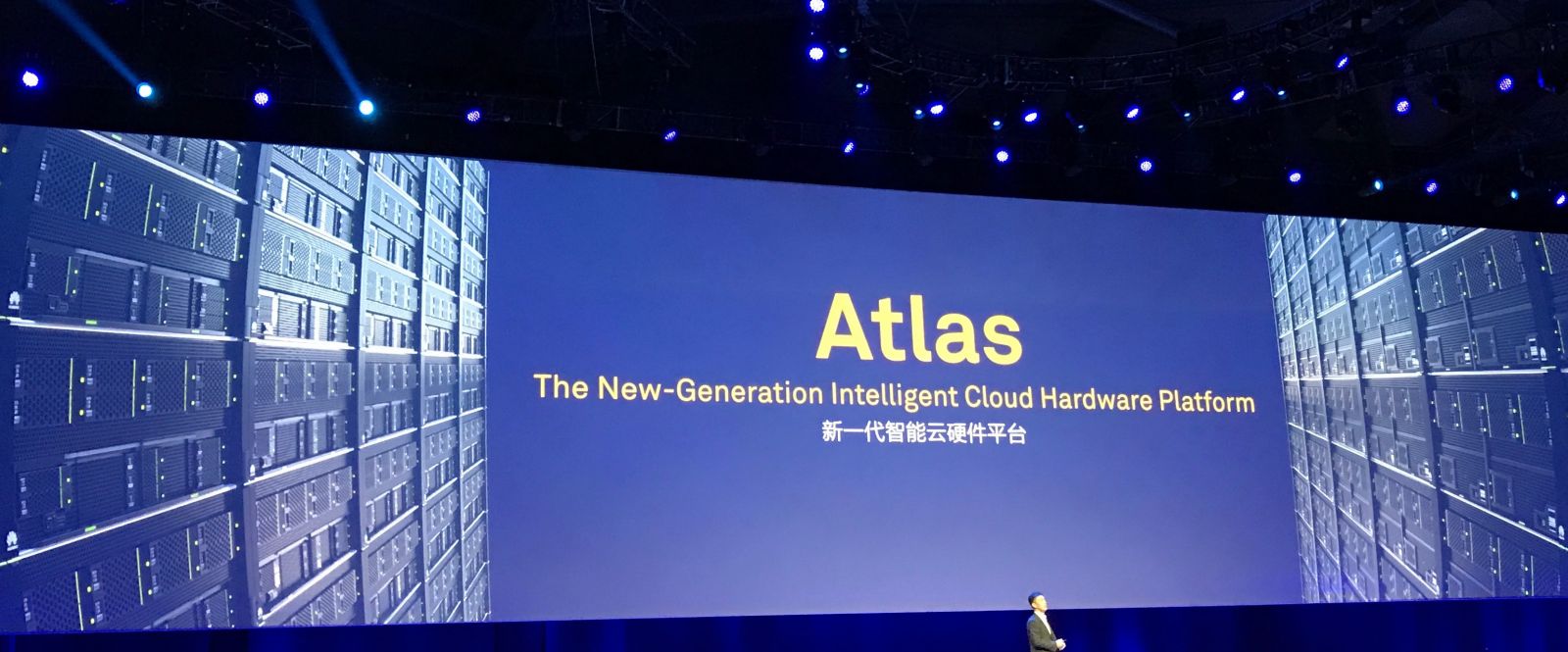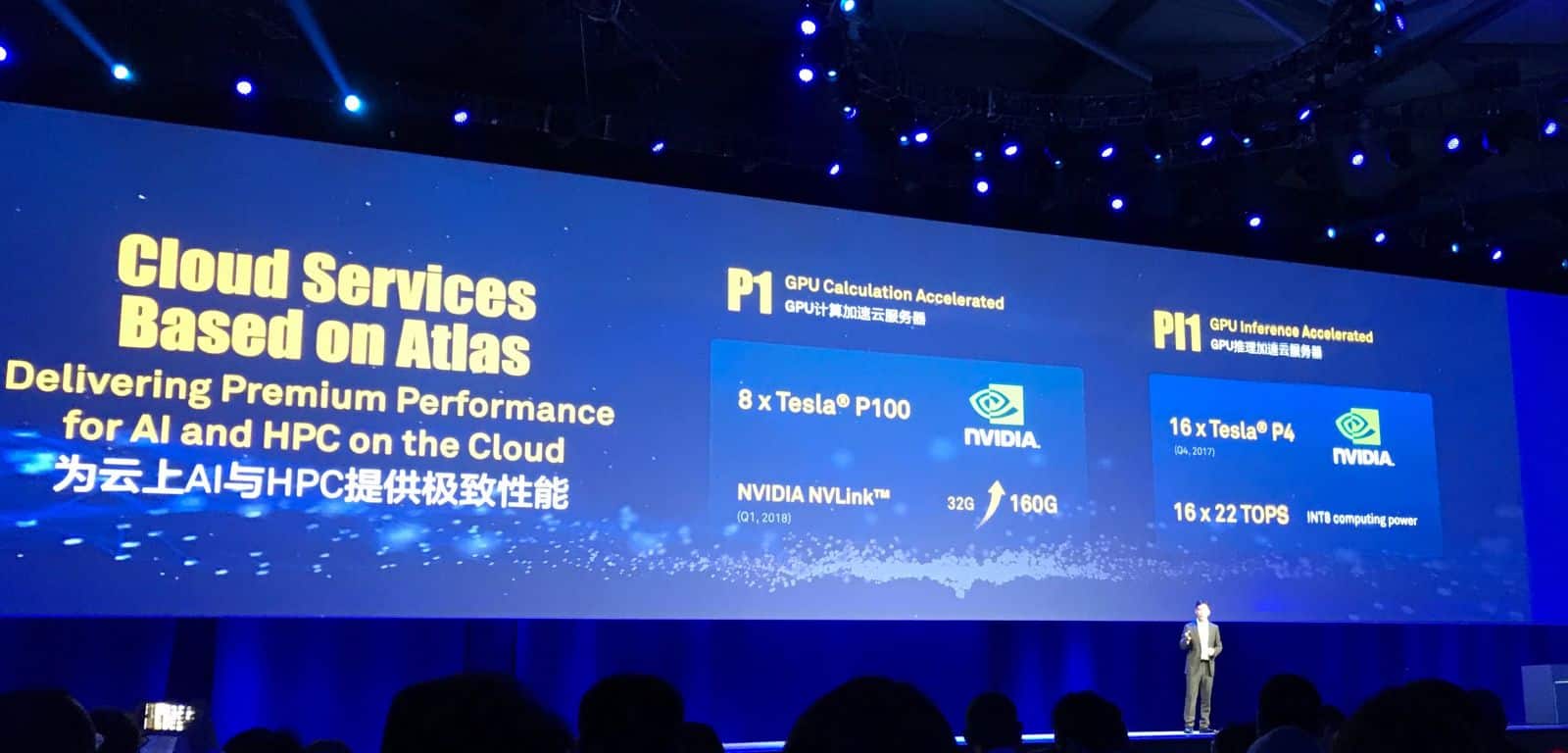At Huawei Connect 2017, the company released its new-generation intelligent cloud hardware platform, Atlas. Atlas follows along with several other key cloud products announced at the event Along with new cloud products, Huawei is heavily investing in a strategy that will aide companies that are currently in the process of their own digital transformation.

Data processing is moving into an entirely new era. Data is being generated in massive quantities and with things like smart, secure cities and automated vehicles, this data needs to be processed and done so in a quick manner. An example given by Huawei is the following: a city with 100,000 cameras installed can produce 100 billion car plate records and 1 trillion facial recognition records a year. With the rise of artificial intelligence (AI) and high-performance computing, this data can be processed but not with traditional computing methods.

Atlas, named after the titan that holds up the sky or world, is well positioned to address the above concerns. A result of Huawei’s Boundless Computing strategy, Atlas leverages technologies such as public cloud, AI, and HPC as well as heterogeneous resource pooling and intelligent orchestration to deliver, what Huawei is calling, new levels of hardware resource utilization and adapt more flexibly to service demands. Based on Huawei’s FusionServer G series heterogeneous servers, the Atlas platform pools resources such as GPUs, HDDs, and SSDs, and provisions hardware resources on demand to suit the needs of specific service models. Atlas is able to drive an over 50% higher resource utilization efficiency and have 10x the performance of traditional x86 architecture.
The Company announced several other Cloud products at Connect 2017 including:
- Software innovation: Huawei DevCloud enables tools, capabilities, and process services on Huawei Cloud, sharing Huawei's accumulated development experience with enterprises.
- Data innovation: Huawei Cloud enterprise intelligence (EI) services assist enterprises in data innovation to create an intelligent world. Huawei Cloud not only offers platform services, such as deep learning, graph analysis, and search, but also AI services, such as image tagging, intelligent audits, graph rebuilding, automated handling of customs declarations using Optical Character Recognition (OCR), and intelligent packing, enabling smarter enterprises.
- Connection innovation: Huawei Cloud Internet of Things (IoT) platform is a full-stack platform that includes SIM card management, device management, and application enablement layer, having features of secure connection, cross-industry ecosystem, and easy integration. The platform provides a wide spectrum of industry enabling suites and templates, so that Huawei Cloud better matches IoT and Internet of Vehicles (IoV) scenarios.
- Architecture innovation: Huawei Cloud released the FusionCloud Stack solution and introduced enterprise storage services with 99.9999% reliability. As an extended module of the public cloud, FusionCloud Stack can be deployed in enterprises' data centers. If the network connecting to the public cloud fails, the local system can continue to provide services to enterprises. This solution maintains a consistent user experience of the public cloud, more secure data sovereignty, low latency, and zero local maintenance, helping migrating enterprises' mission-critical services to cloud securely.
- Hybrid cloud innovation: The FusionBridge hybrid cloud solution is based on the OpenStack cloud platform, with an innovative injection cascading architecture that is used to implement homogeneous or heterogeneous hybrid cloud. This solution provides a cross-cloud unified service catalog to shield the differentiation of using multiple cloud platforms. With an undifferentiated cross-cloud service image using HyperContainer, cross-cloud Overlay network automation, and unified vAPP deployment service, the solution easily implements cross-cloud distributed deployment and on-demand expansion of customer services. FusionBridge also provides customers with a Graphical User Interface (GUI) or an Operation and Maintenance (O&M) portal to help customers reduce workloads and simplify cross-cloud management.
Atlas and the other above listed cloud products can be useful to several different companies but adopting and executing digital transformations can present any number of issues. Noting this, Huawei is investing half a billion U.S. dollars over the next 5 years in end-to-end cloud transformation service solutions enabling customers to build, use, and manage their cloud platforms effectively. On top of this, Huawei is investing an additional quarter of a billion dollars in partner programs, making it easier for partners (which as of this writing number over a thousand) to work with Huawei and in turn, easier for the partners to get the benefits to their customers.




 Amazon
Amazon